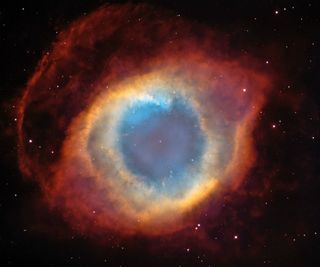Even Scientists Unwittingly See Purpose in Nature

As Hurricane Sandy batters the East Coast, some might be looking for a purpose or greater meaning behind Mother Nature's wrath. But perhaps no platitude irks scientists more than "Everything happens for a reason."
A new study, however, suggests this might be our default way of thinking. The research shows that humans may have a bias for purpose-based reasoning that even scientists can't escape.
A team of psychology researchers at Boston University (BU) asked chemists, geologists and physicists from major universities such as Harvard, MIT and Yale University to evaluate explanations for different natural phenomena. The statements included purpose-based (or teleological) explanations such as "Trees produce oxygen so that animals can breathe," or "The Earth has an ozone layer in order to protect it from UV light."
Scientists who were not under time pressure tended to accurately reject these purpose-based explanations. Meanwhile, scientists who were instructed to assess the statements quickly were more likely to endorse these teleological explanations, even though they are scientifically unwarranted.
"It is quite surprising what these studies show," Deborah Kelemen, an associate professor of psychology at BU, said in a statement. "Even though advanced scientific training can reduce acceptance of scientifically inaccurate teleological explanations, it cannot erase a tenacious early-emerging human tendency to find purpose in nature. It seems that our minds may be naturally more geared to religion than science."
The researchers found the same patterns among two control groups of undergraduates and college graduates, though the scientists overall were less likely to accept purpose-based explanations in comparison. But the group of scientists had no less of a bias for purpose-based thinking than a group of English and history professors surveyed in the study, the researchers said.
The team says their results hint at an underlying belief in meaning behind natural phenomena that persists from early development. In light of Hurricane Sandy, the study seems to build on previous research suggesting that the desire to turn to God for an explanation for disaster is a widespread human urge. A poll last year found that 44 percent of Americans think that natural disasters are or could be a sign from God.
Sign up for the Live Science daily newsletter now
Get the world’s most fascinating discoveries delivered straight to your inbox.
The new study was detailed online in the October edition of the Journal of Experimental Psychology: General.
Follow LiveScience on Twitter @livescience. We're also on Facebook & Google+.
